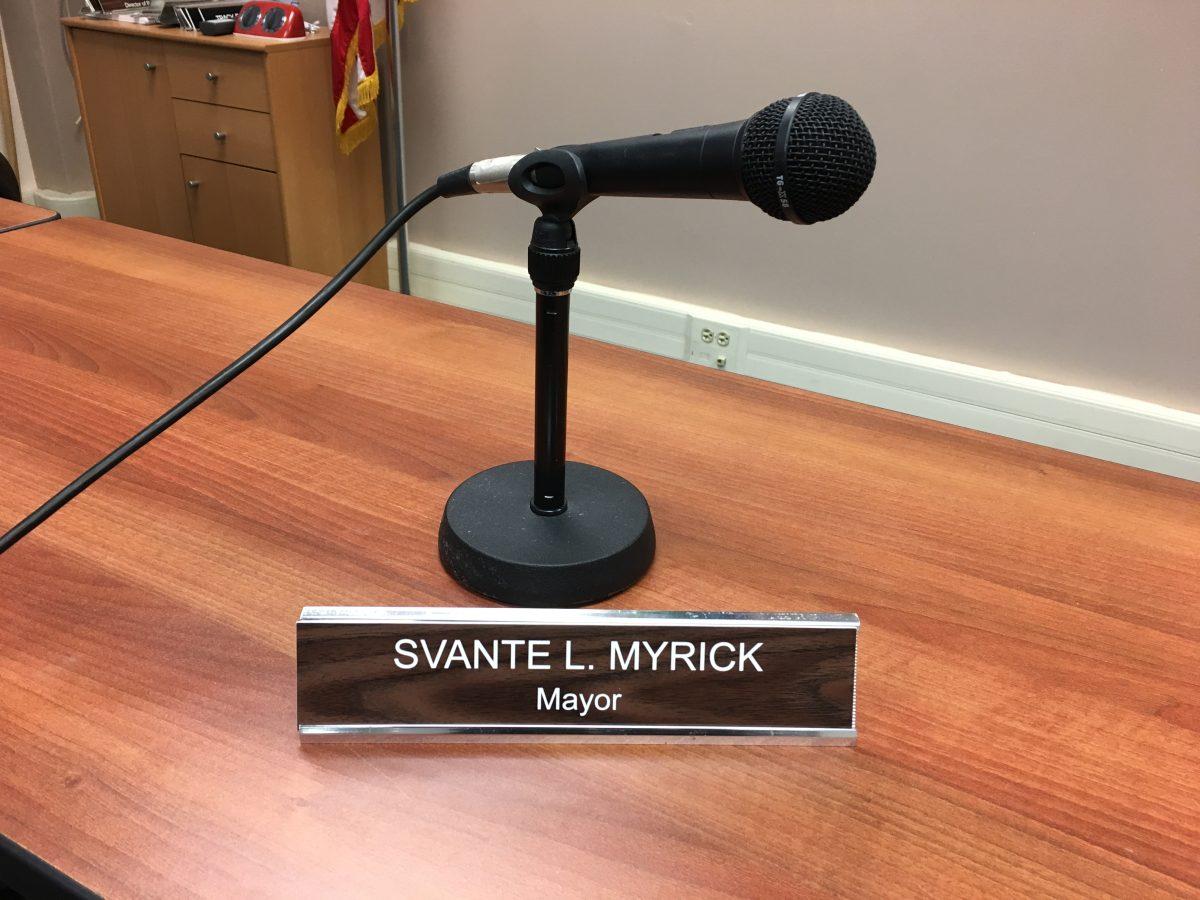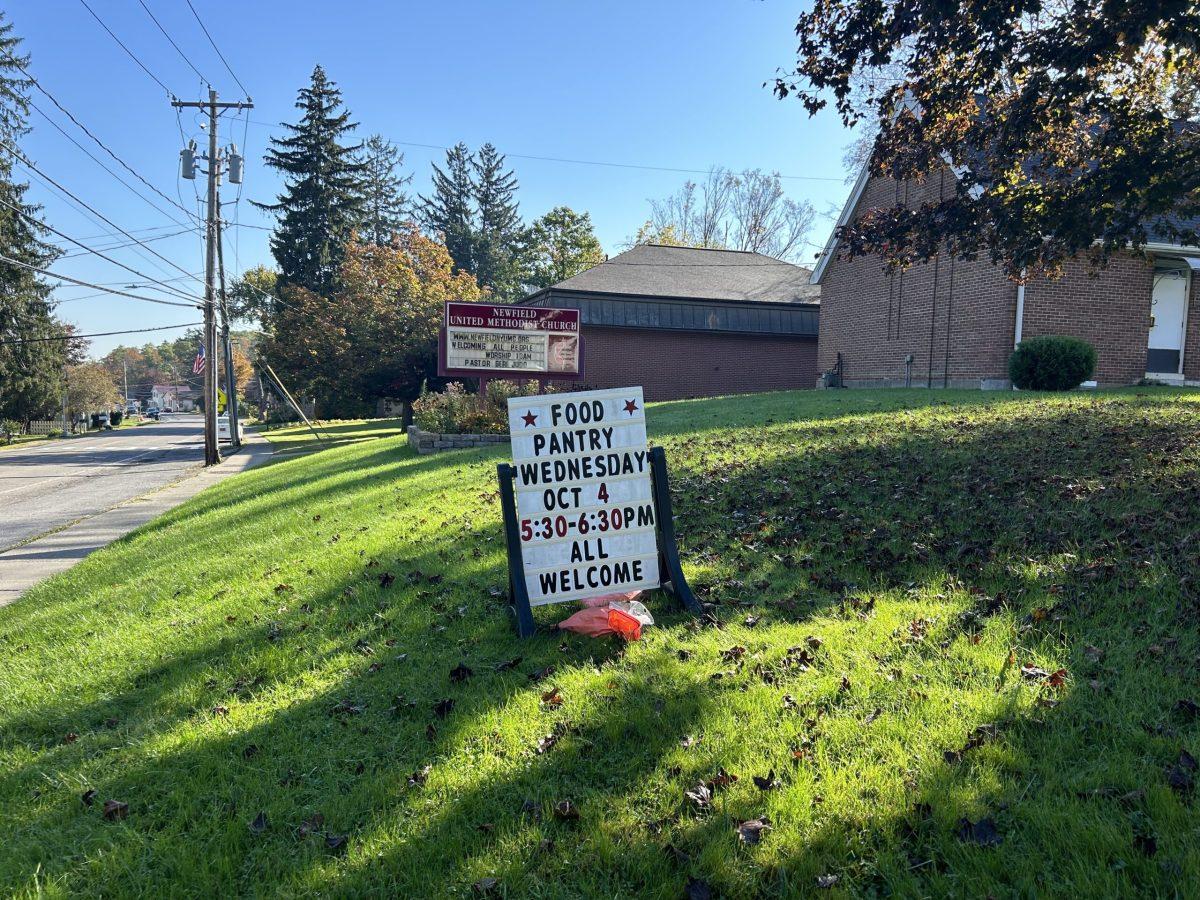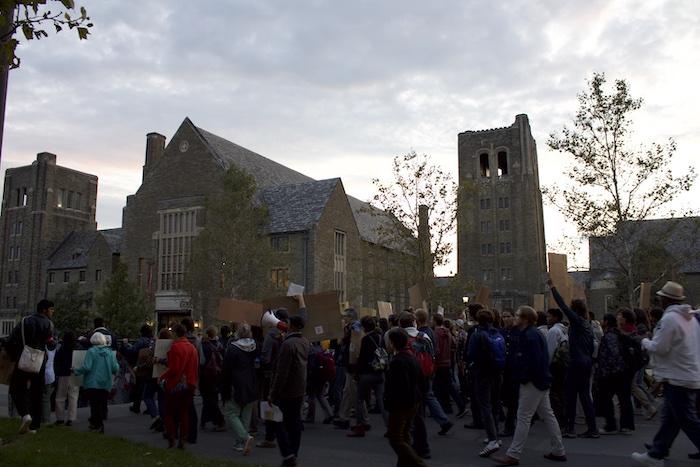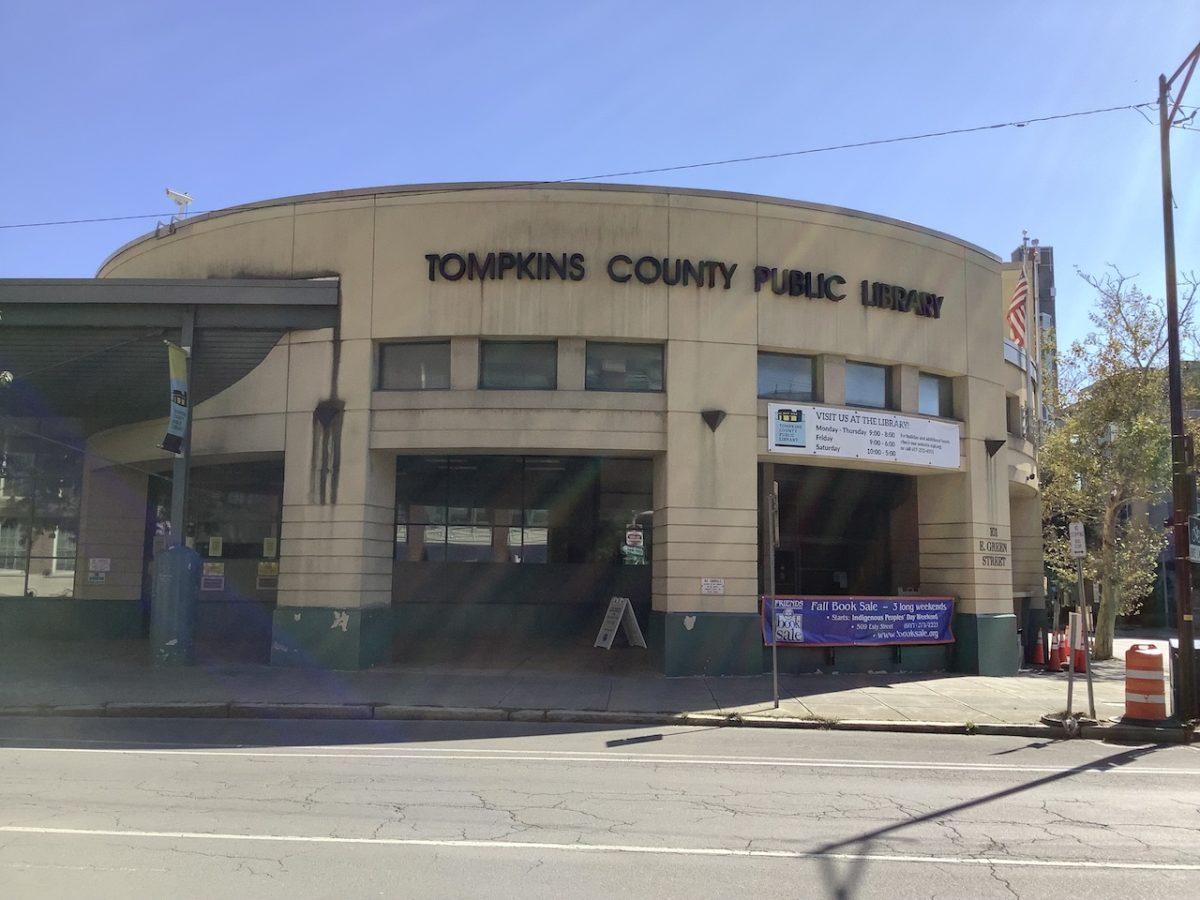[slideshow_deploy id=’6583′]
ITHACA-
Across the U.S. there are over 200 sanctuary cities, and Ithaca just became one of the newest to join the list. On Feb. 1 the Ithaca Common Council unanimously passed an ordinance to give the city sanctuary status, after a two hour public meeting where dozens of citizens spoke in overwhelming support. The ordinance was a direct result of the travel ban affecting Iran, Iraq, Syria, Yemen, Sudan, Libya and Somalia signed by President Trump on Jan. 27.
A sanctuary city is a city that looks to offer a safe place for illegal immigrants. In order to create this atmosphere, these cities do not accept funds that would go towards enforcing federal immigration laws. Although there is no legal definition of the term, it is assumed that a sanctuary city would illegally protect undocumented immigrants, even if it opposes federal law. In Ithaca’s case, city officials are no longer permitted to ask a person’s immigration status unless they are committing a crime in which their status is relevant.
Cynthia Brock, 1st Ward Alderperson, is a member of the Ithaca Common Council and was the driving force behind the construction of the resolution. She said that the term sanctuary city has been used throughout the media across the nation but that it does not properly describe the city of Ithaca. Ithaca has been named a sanctuary city, however local law enforcement will serve and protect the rights of undocumented immigrants without using illegal methods.
“What Ithaca did is define what city law enforcement officials will and will not do with regards to enforcement of federal law and that it would give minimal support for immigration officials and immigration enforcement,” Brock said.
Brock said that as a result of the ordinance, all Ithaca law enforcement and city officials will be briefed and trained on the new policies regarding undocumented immigrants in the community. Ithaca law enforcement will not ask a person their immigration status unless they are under arrest, due to New York State law. Additionally, law enforcement will not detain an undocumented immigrant for the sole reason of their immigration status under normal processing. If for any reason federal immigration officers are coming to Ithaca, local law enforcement must disclose this information to undocumented immigrants detained for a crime. Ithaca will not utilize city resources to help federal immigration officers in any way, Brock said.
Although the travel ban only affected seven Middle Eastern countries, it also had an underlying effect on border countries. Ithaca College freshman, Farwa Shakeel, said that her parents migrated to the U.S. from Pakistan before she was born for economic reasons. Shakeel, a freshman politics major, said that although she and her family were not directly affected by the ban, it is important to be informed on the political situation.
“For me, politics is about gathering together and standing up against one political ideology and creating another,” Shakeel said. “I think that sanctuary cities, although there really isn’t any legislation behind them, is still an important statement to make especially in the political situation that we’re in right now.”
Brock raised the desire to address the the city’s position in terms of approaching immigration and refugees back in December as a result of then President-Elect Trump’s campaign. She built off of the initial effort of the 1985 Ithaca City Council who had urged to protect those who came as refugees from Central America. Placing the new ordinance directly into the city’s code sends a strong message to the community that Ithaca city officials and law enforcement are here to assist everyone regardless of their immigration status.
Members of the Council were hesitant at first because of concern regarding legality, Brock said. However, Mayor Svante Myrick has been in full support of the resolution since it was first discussed back in December. Brock said what was most fundamental in allowing this resolution to move forward were the actions by NY State Attorney General Eric Schneiderman. He was credited with publishing “Guidance Concerning Local Authority Participation In Immigration Enforcement And Model Sanctuary Provisions,” a set of guidelines based on his analysis of what is safe and allowable by federal law.
“There was clearly a lot of confusion at the committee level,” Brock said. “The mayor worked with members of the committee who had expressed concern. I don’t think that it would have happened if Mayor Myrick hadn’t been in complete support of my efforts, and for that I’m very grateful.”
Talha Demir, a junior at Ithaca College and a Turkish citizen, said that though the Trump presidency has already affected his family and others in the Middle East, he feels as though Ithaca provides a safe space for all people.
“I wasn’t surprised that the common council took this action because Ithaca is a safe haven for all of us, especially at this time,” Demir said.
Ithaca’s recent sanctuary status will not only protect the rights of undocumented immigrants in the community, but it sets a precedent for surrounding cities and counties to follow. Brock said Tompkins County Legislator Anna Kelles is trying to make a similar effort for all of Tompkins County.
“By putting these protections in place, I hope this will bring this underserved population out of the shadows and allow them to be visible, receive protections, feel that they can come forward if they become a victim and to get assistance so that they are less likely to be victims of exploitation and violence,” Brock said.






